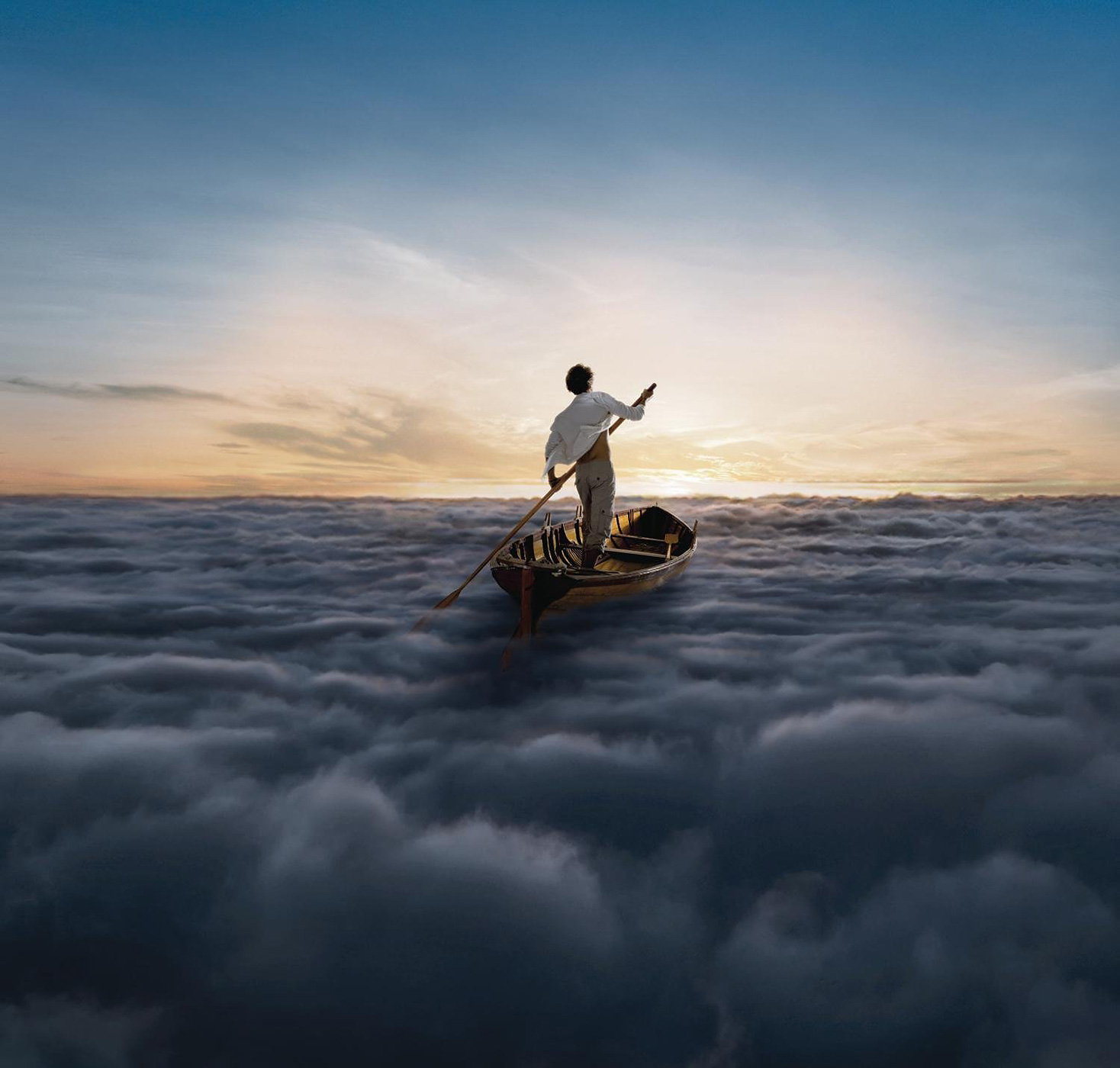
Correction appended: Nov. 8, 2014
On Nov. 7, Pink Floyd releases Endless River, the band’s 15th — and likely last — studio album. Preliminary reviews range from tempered praise (“Short on catchy tunes, it’s still an effective 53-minute trip”) to unmitigated disappointment (“depressingly symptomatic of the stasis that a certain kind of ponderous prog-rock had reached by the late ’70s”). But more remarkable, or perhaps unremarkable, is the revelation that the album isn’t really new material — just a belatedly edited series of outtakes from an album released 20 years ago.
That album was 1994’s Division Bell, and Endless River draws its name from the final lyrics on its final track in order, as the band said in an interview with BBC, “to show some sort of continuum” between the two projects. But some critics suggest that what the band calls “continuum” is just a nice way of describing unimaginative recycling of old material. Aside from continuing where Division Bell left off, the album has a few other reasons for existing — chief among them to pay tribute to keyboard player Rick Wright, who died in 2008. It was also, at one time, under consideration to score a film by The Matrix filmmakers Andy and Lana Wachowski.
Pink Floyd isn’t alone when it comes to repackaging leftovers for later release. The trend is nothing new — jazz saxophonist Sonny Stitt released an album called Previously Unreleased Recordings in 1960 — but recent years have seen a lot of it. Bob Dylan’s much-anticipated The Basement Tapes Complete: The Bootleg Series Volume 11, released earlier this week, consists of more than 100 tracks recorded 47 years ago. An album of previously unreleased Hank Williams tracks was released in May. Sometimes, these tracks are the cherry on top of a box set or reissue, as with the reissue of Nirvana’s Nevermind, the release of three remastered Led Zeppelin albums this spring, and the recent 45th anniversary edition of The Velvet Underground’s eponymous third album.
So why, when the practice is not only common, but generally celebrated by fans, is Pink Floyd getting flack for it? For one thing, the fact that the band changed formation makes the notion of recycling old recordings particularly fraught. Telegraph music critic Neil McCormick says that it’s “not really a Pink Floyd album at all,” as the band morphed, after Roger Waters’ 1985 departure, into what he calls a “bloated after-dinner, slippers-port-and-pipe version of a former firebrand.” Considering that these recording sessions were originally dubbed The Big Spliff, McCormick ventures a guess that Endless River is essentially one long stoner jam session — albeit one with talented musicians.
This release also differs from the Dylan and Williams albums because these artists’ recordings were so fiercely coveted. Dylan fans knew about his unreleased basement recordings and considered it a great feat to get their hands on bootleg versions throughout the 1970s. The Williams recordings were released 60 years after the singer’s death, at which point any expectation of new material had been more or less extinguished. But Endless River is the continuation of an album that, though it topped the charts, met with mixed critical reception. Division Bell was also, as McCormick notes, a product of an era in the band’s history that some fans dismiss, thanks to the absence of the visionary Waters.
Endless River will disappoint those who were hoping to hear where Pink Floyd is, creatively speaking, in the year 2014. It will please the superfan hungry for any and all material from a favorite band, of course. And whatever your stance on the quality of the music itself, the debate about Endless River is one about labels. Call it their latest, or their last, their most recent or their contribution to the universe of previously unreleased recordings. Just don’t call it new — it’s not.
Correction: The original version of this story incorrectly named Rick Wright as the bass player of Pink Floyd. Wright played keyboard in the group.
More Must-Reads from TIME
- Why Biden Dropped Out
- Ukraine’s Plan to Survive Trump
- The Rise of a New Kind of Parenting Guru
- The Chaos and Commotion of the RNC in Photos
- Why We All Have a Stake in Twisters’ Success
- 8 Eating Habits That Actually Improve Your Sleep
- Welcome to the Noah Lyles Olympics
- Get Our Paris Olympics Newsletter in Your Inbox
Write to Eliza Berman at eliza.berman@time.com